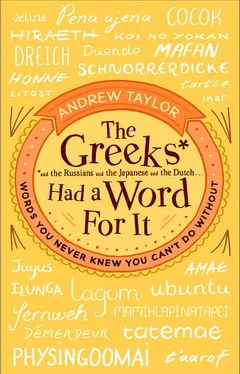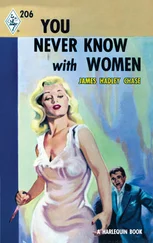The English writer Israel Zangwill, working at the end of the nineteenth century, published a satirical novel named The King of Schnorrers , which tells the story of a Sephardic Jew, the grandly named Manasseh Bueno Barzillai Azevedo da Costa, who plays on his claims of scholarship, family background and royal connections to fleece a succession of more or less gullible victims. More ironically, the Zionist leader Theodor Herzl, around the same time, said that the best-kept secret of his campaign was the work of ‘an army of schnorrers possessing a dream’ who hassled and persuaded and cajoled Jews across Europe to support his idea of a Jewish state.
Your taxi driver is probably not remembering these literary antecedents and probably not even thinking of the traditional characteristics of the Jewish schnorrer . He is simply using the best word available to describe a tightwad, a miser, a Scrooge and a skinflint, all rolled together and invested with all the contempt, mockery and derision that the Yiddish language can muster.
Or nearly all. If you don’t leave any tip, you may hear the word schnorrerdicke ( SHNORR-uh-DICK-uh ). That means the same, but much, much more so. Better by far to give him his tip in the first place – and make it a big one.
Handschuhschneeballwerfer & Sitzpinkler
(German)
A man who is a bit of a wimp
Few national stereotypes can be as undeserved as the reputation that the Germans have picked up for having no sense of humour. How can that possibly be true of a people who speak a language with words that are seventy-nine letters long? Their habit of creating a new compound word by the simple expedient of sticking together two, three, four or more old ones would seem logically to mean that German can translate any number of words in any language with just one of its own.
Practical stuff. But how could you use a word like Donaudampfschiffahrtselektrizitätenhauptbetriebswerkbau-unterbeamtengesellschaft without sniggering? It means ‘The association for junior officials of the head office management of the Danube steamboat electrical services’, and if any journalist were ever foolish enough to use it, it would run into three lines of a single column in a broadsheet newspaper – not that it crops up much in conversation. I suspect that, like its rather less impressive English equivalents antidisestablishmentarianism (opposition to a policy of taking away the Church of England’s special role in the state) or floccinaucinihilipilification (the act of valuing something as practically worthless), Donaudampfschiffahrt etc. is one of those words cobbled together simply to give schoolchildren something to laugh and marvel at.
So the German language’s capacity for making new compounds from old words results in more than just astonishing length. It also gives the language an enviable sense of fun. Take handschuhschneeballwerfer ( hant-shoo-SHNAY-ball-vairf-uh ) and sitzpinkler ( SIT-spink-luh ), for instance. Each of them arrives at pretty much the same meaning, although they take a different route to get there. And you probably wouldn’t want either of them to be applied to you.
A handschuh is, literally, a ‘hand-shoe’ – a glove. (If you couldn’t work that out for yourself, you haven’t got into the spirit of compound words.) Schnee is snow, so schneeball is pretty obvious; and the verb werfen is what you do to one. So a handschuhschneeballwerfer is a person who wears gloves to throw snowballs. That is not interpreted, as you might think, as someone who has at least an ounce of common sense but as someone who is scared to get his hands cold – hence, a bit of a wuss, a wimp or a softy.
These days you wouldn’t translate that word into English as ‘a big girl’. For sitzpinkler , however, that might just be an ideal translation. A sitz is a seat, and pinkeln is what you might do privately while you were sitting down, if you happen to be a woman. (I’m making an effort to be delicate here.) So a sitzpinkler is a man who sits down to pee, hence a man who behaves like a woman, and hence – well, someone who’s not very macho in a patriarchal society where real men used to show off their duelling scars.
In an English conversation, each of these two words has the advantage of being mildly insulting in a way that won’t be understood and therefore won’t get you into trouble. But, if you are sufficiently sexist to want to use sitzpinkler as a term of abuse, you should be warned that times are changing. In these metrosexual days, it might actually be taken as a compliment. Signs have appeared in some German toilets warning that stehpinkeln (the opposite of sitzpinkeln ) is messy and antisocial. Gadgets exist that play a recorded message to that effect every time a defiant man raises the seat. These warnings come in a variety of voices, including those of the former chancellors Helmut Kohl and Gerhard Schröder.
Imagine some British manufacturer bringing out a similar gadget using the voices of Margaret Thatcher, Tony Blair or David Cameron. But maybe that would be taking the cliché of the nanny state just a bit too far.
Scorn expressed at someone else’s inability to commit fully to something you believe in passionately
Sometimes, just sometimes, it’s necessary to be vulgar to get your point across with sufficient force. Take the occasions, for instance, when you are fully committed to an idea or a project, and you have poured yourself heart and soul into ensuring its success. There will be no second thoughts for you – you have burned your bridges, and you’re not looking back.
Perhaps it’s a minor issue, like playing for a football team or joining a political party, or perhaps it’s something life-changing, not just for you but for generations to come – something like building a nation, for instance.
You’ll hope that your commitment will inspire others to follow you – if it doesn’t, you may be doomed to failure – but you expect those who follow to feel the same level of enthusiasm and single-mindedness when they join as you had right at the beginning. Instead, as the venture begins to show the first signs that it is going to work, you find people flocking to reap the fruits of your hard work while carefully preserving their way out in case things go wrong.
Instead of diving in alongside you, they are constantly looking back nervously over their shoulders, ready to pull out and run for cover the first time things take a turn for the worse.
What’s the word you would choose to describe such people? ‘Freeloaders’ might do, except that it doesn’t carry the sense of cowardly retrospection that you are looking for. ‘Fainthearts’ the same – and neither one begins to touch the contempt and ridicule that you want to express.
That is the problem, early in the twentieth century, which faced the Afrikaaner farmers of South Africa – a people who, with some justification, did not enjoy a good press during much of that century. They felt that the English settlers who had flooded out there after the Boer War were never wholeheartedly committed to the future of South Africa, that they maintained close links to Europe, with property and investments ‘back home’ as an insurance policy in case they needed to cut and run.
‘ Soutpiel ,’ ( SOHT-peel ) some leathery-faced old Boer must have spat into the dust as he chewed his biltong. The word means literally, in Afrikaans, ‘salt-dick’, and at that moment he gave to the world the memorable image of someone standing with one foot in South Africa and the other in England, his legs stretched so that his penis dangled in the sea. The same thought might apply today to those in England who want to stay in the European Union but defend Britain’s right to do things differently, or perhaps the many celebrities who seem to live on both sides of the Atlantic at once.
Читать дальше












